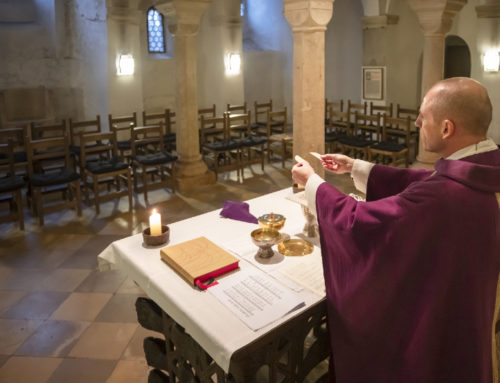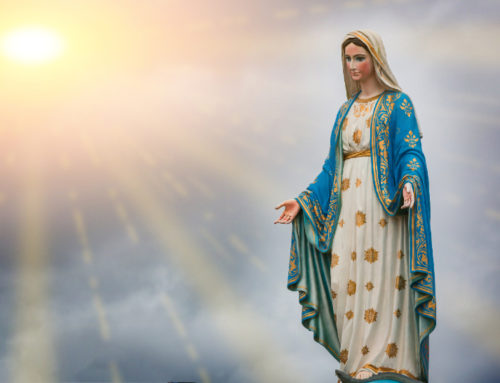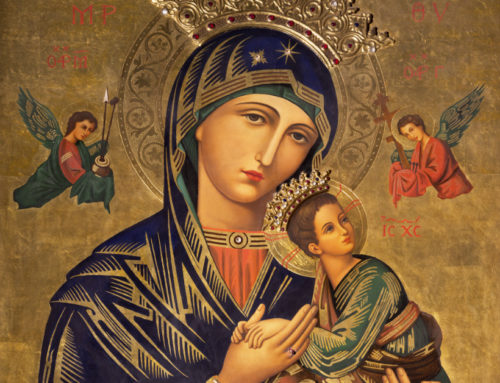Holy Trinity icon
Anthony the Great, called ‘The Father of Monks’, was born in central Egypt about A.D. 251, the son of peasant farmers who were Christian. In c.269 he heard the Gospel read in church and applied to himself the words: “Go, sell all that you have and give to the poor and come…” He devoted himself to a life of asceticism under the guidance of a recluse near his village. In c. 285 he went alone into the desert to live in complete solitude. His reputation attracted followers, who settled near him, and in c. 305 he came out of his hermitage in order to act as their spiritual father. Five years later he again retired into solitude. He visited Alexandria at least twice, once during persecution of Christians and again to support the Bishop Athanasius against heresy. He died at the age of one hundred and five. his life was written by Saint Athanasius and was very influential in spreading the ideals of monasticism throughout the Christian World.
1.When the holy Abba Anthony lived in the desert he was beset by accidie, and attacked by many sinful thoughts. He said to God, “Lord, I want to be saved but these thoughts do not leave me alone; what shall I do in my affliction? How can I be saved?” A short while afterwards, when he got up to go out, Anthony saw a man line himself sitting at his work, getting up from his work to pray, then sitting down and plaiting a rope, then getting up again to pray. It was an angel of the Lord sent to correct and reassure him. He heard the angel saying to him, “Do this and you will be saved.” At these words, Anthony was filled with joy and courage. He did this, and he was saved.
2.When the same Abba Anthony thought about the depth of the judgements of God, he asked, “Lord, how is it that some die when they are young, while others drag on to extreme old age? Why are there those who are poor and those who are rich? Why do wicked men prosper and why are the just in need?” He heard a voice answering him, “Anthony, keep your attention on yourself; these things are according to the judgement of God, and it is not to your advantage to know anything about them.”
3.Someone asked Abba Anthony, “What must one do in order to please God?” The old man replied, “Pay attention to what I tell you: whoever you may be, always have God before your eyes; whatever you do, do it according to the testimony of the holy Scriptures; in whatever place you live, do not easily leave it. Keep these three precepts and you will be saved.”
4.Abba Anthony said to Abba Poemen, “This is the great work of a man: always to take the blame for his own sins before God and to expect temptation to his last breath.”
5.He also said, “Whoever has not experienced temptation cannot enter into the Kingdom of Heaven.” He even added, “Without temptations no-one can be saved.”
6.Abba Pambo asked Abba Anthony, “What ought I to do?” and the old man said to him, “Do not trust in your own righteousness, do not worry about the past, but control your tongue and your stomach.”
7.Abba Anthony said, “I saw the snares that the enemy spreads out over the world and I said groaning, ‘What can get through from such snares?’ Then I heard a voice saying to me, ‘Humility.'”
8.He also said, “Some have afflicted their bodies by asceticism, but they lack discernment, and so they are far from God.”
9.He also said, “Our life and our death is with our neighbour. if we gain our brother, we have gained God, but if we scandalise our brother, we have sinned against Christ.”
10.He said also, “Just as fish die if they stay too long out of water, so the monks who loiter outside their cells or pass their time with men of the world lose the intensity of inner peace. So like a fish going towards the sea, we must hurry to reach our cell, for fear that if we delay outside we will lose our interior watchfulness.”
11.He said also, “He who wishes to live in solitude in the desert is delivered from three conflicts: hearing, speech, and sight; there is only one conflict from him and that is with fornication.”
Excerpt from The Sayings of the Desert Fathers translated by Benedicta Ward, SLG. Published by Cistercian Publications in Trappist, KY 1984.




